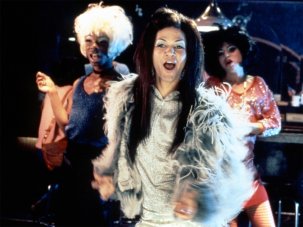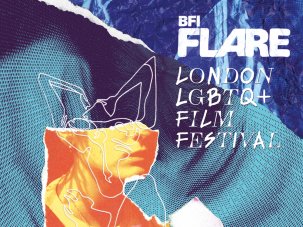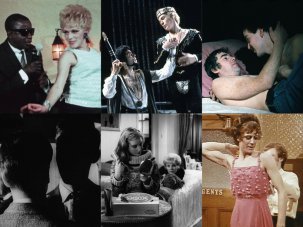After two very successful editions, BFI Flare Mentorships are back, now as an official part of BFI NETWORK, once again in partnership with BAFTA.
This programme sees six emerging LGBT-identified filmmakers mentored by a senior figure from the film industry while developing industry knowledge, professional connections, and gaining an overview of LGBT features entering the marketplace.
From a truly impressive range of submissions, we have selected six gifted filmmakers to join the growing family of talent supported by the programme. Producer, writer, documentary director/producer, and three writer/directors, the 2017 Mentees represent a diverse group with cinematic interests across a wide spectrum.
Meet the filmmakers who have been selected for 2017’s BFINETWORK@ FLARE Mentorships in partnership with BAFTA.
Amrou Al-Kadhi, writer
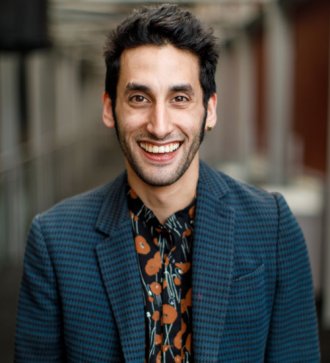
Amrou graduated from the University of Cambridge with a BA and M.Phil. in the History of Art. He was selected as one of the 15 emerging filmmakers by the 2016 NETWORK@ LFF programme; and his first short film Nightstand, which he also wrote and starred in, was executive produced by Stephen Fry, and picked up for DVD and Cinema distribution by Peccadillo Pictures. Amrou is the co-creator, co-writer, and lead actor of Nefertiti, a comedy series in development with Big Talk Productions and Channel 4 – which explores the scandalous double-life of an Egyptian Drag queen living in London with his strict Muslim mother. He is also the creator, writer, and lead actor of feature film Abigail & Gabriel, about the odd-couple friendship between a homeless gay Iraqi in London, and a 70-year-old Christian widow – which is currently in development with Sarah Brocklehurst Productions, and secured a script commission with BBC Films. Amrou is currently writing/directing a short commission for NOWNESS about female drag queen Victoria Sin, being produced by Savannah James-Bayly (Fox Cub Films). Amrou is represented by Giles Smart & Kitty Laing at United Agents.
Amrou on challenges for LGBT film and filmmakers
I was recently in an argument about the film Carol in a panel on queer cinema (I defended the film ardently). Another queer filmmaker felt that the work was inherently capitalist due to its production value. I feel the queer refuge away from “the industry” paradoxically co-opts the heteronormative exclusion of our voices, as the work is often just not seen. LGBT filmmakers need to be constantly empowered to find a way to operate in mass-cultural spaces, like secret agent queer Robin Hoods, ransacking the fruits of the industry to distribute them more equally.
There’s a big difference between being gay and being queer; being gay simply means I am sexually attracted to the same sex, but being queer is a non-conformist identity and a counter-cultural outlook on life. Whilst I am of course inclined to tell stories about my sexuality, I am much more invigorated to tell stories about a wide-ranging spectrum of issues, but through a queer, intersectional perspective.
Amrou on an admired filmmaker
Andrea Arnold is a real hero of mine. I’ve now seen American Honey twice, and cannot wait to watch it again. Andrea Arnold inspires me because she makes films an experience. Her cinematographic choices thrust the viewer into underrepresented worlds, and I never feel like I’ve “watched” her films, but have “experienced” them. As a queer filmmaker, I think there is much to be learned from this. Specifically, if queer filmmakers are able to create worlds that the viewer feels embedded in, perhaps this might help to create empathy in characters and spaces that viewers haven’t seen before.
Gillian Callan, documentary director-producer
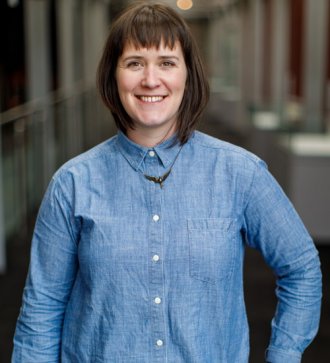
Gillian is a documentary filmmaker based in Belfast, Northern Ireland but filming anywhere there is an important story to be told. She has worked on a range of factual, current affairs and observational documentaries for the BBC and Channel 4; covering diverse topics from mental health, to crime, death, comedy and historical subjects. Her most recent short film Recorded Absence was nominated in the Short Doc Award category of Sheffield Doc/Fest 2016 and she was part of a small team behind the double RTS award-winning Channel 4 documentary Kids in Crisis. Combining her journalism training with her self-shooting camerawork and production experience she aims to tell important untold stories. This year she is focused on making LGBTQ+ television and feature documentaries for both an international and local Northern Irish audience.
Gillian on challenges for LGBT film and filmmakers
Why can’t LGBT films just be films? Films about challenges, successes, love and heartbreak, community, careers and family… “we are everywhere”. Documentaries and dramas about LGBT people are mostly watched by other LGBT people, which is a wonderful life-affirming and important experience, but bringing in a wider audience is key to a greater understanding of the LGBT community. Finding a way to make these stories accessible to all and appealing to funders is a great challenge but it’s never been more important or realistic than it is today.
Gillian on an admired filmmaker
Last year I watched Maya Goded’s documentary Plaza de la Soledad and I was hooked. It was uncomfortable, dark and brutal but endlessly mesmerising. I was lucky and got to meet her after her showing at Sheffield Doc/Fest and when I asked her how she managed to make a documentary so beautiful she told me it had taken her 20 years. Twenty years of trust and commitment, it all made sense and her humour and humility also explained how her contributors had been so willing to open up to her.
Jake Graf, writer-director
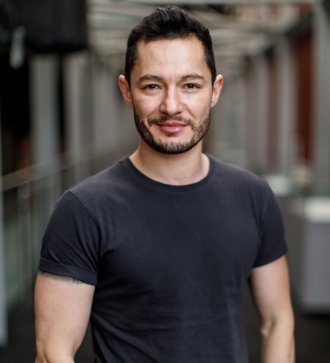
Jake is a director, writer and actor based in London known for Headspace(2017), Dusk (2017), Dawn (2016), Chance (2015), Brace (2014), and XWHY (2013). He is a patron of the Mermaids Charity, which works with transgender and gender non-conforming children and their families, a judge and ambassador for The British LGBT Awards, and was featured on Out Magazine’s 2016 OUT100 list. Jake’s first film, XWHY, was nominated for The Iris Prize. Jake’s subsequent films, were multi award winning, screened at hundreds of festivals internationally, and all have distribution through Peccadillo Pictures. Jake’s latest film, Dusk, starring Duncan James and Elliott Sailors, is just launching on the international festival circuit. He has just written and starred in eight-part LGBT web series Spectrum, is starring in upcoming LGBT drama series Different For Girls premiering at BFI Flare, and his mini short Headspace went viral in February, amassing three million online views. He is currently working on expanding Headspace into a series, writing TV drama pilot Habit, and working on his second feature script.
Jake on challenges for LGBT film and filmmakers
I think that one of the biggest challenges that we face is the age old dilemma of funding: as more and more LGBT filmmakers find their voices and finally feel able to share their stories on screen, the already limited funding pots become scarcer, and harder to acquire. When you also consider that larger film funds may already feel some reluctance when funding queer film due to its financial risk factor, that support becomes even more elusive.
The crossover potential of queer stories is also tricky to navigate: how ‘queer’ can you really go before you alienate a substantial section of your audience? I firmly believe that as LGBT filmmakers it is vital that we tell our stories and remain unafraid to do so. So far, I have written predominantly trans or gay themed films and the now I hear a roaring buzz that seems to suggest I start telling the stories of those characters with universal appeal. So when does a reluctance to sell out become our Achilles heel..?
Jake on an admired filmmaker
I have always admired director Tom Hooper, a huge fan since 2010’s The King’s Speech. I remember being fascinated by the sumptuous sets, the surprising and innovative set ups, the framing that seemed entirely original. For 2015’s The Danish Girl, I was lucky enough to be an extra and see Hooper at work, on set with Eddie Redmayne, Alicia Vikander and Matthias Schoenaerts. He was dedicated to both actors and crew, patiently reframing almost every shot in what seemed to be a very simple scene; hands on, intense, and an obvious perfectionist. The end result was, to my mind, breathtaking, even more so as it was a subject so close to my heart. I doubt however that after the overwhelming furore over the casting that he would ever make another trans/queer themed film, and I truly think that that is our loss.
Savannah James-Bayly, producer
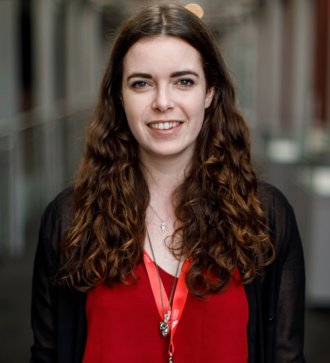
Savannah established Fox Cub Films in 2012 and has since produced over eight short films, starring talent such as Jason Flemyng, Bill Paterson and Alice Lowe. These films have shown at a range of festivals internationally, and in 2014 Arthouse Cinema Crouch End included a feature length collection in their December programme. She’s currently working as Associate Producer on A Guide to Second Date Sex, written/directed by Rachel Hirons, and developed for Starfield Productions with the support of the BFI. She’s also developing her own slate of features (a number of which explore LGBT themes), a series of shorts with writer/director Amrou Al-Kadhi emphasizing intersectionality (including a recent commission for NOWNESS about female drag queen, Victoria Sin) and a feminist web-series with BAFTA Breakthrough Brit, Sarah Walker. She was a participant in American Pavillion’s Film Programme at Cannes 2015, Film London’s Micromarket 2015, Bird’s Eye View’s Filmonomics 2016, Edinburgh International Film Festival’s 2016 Talent Lab, is part of the recently launched Female Film Leaders, and has served on the jury of Watersprite Film Festival 2016.
Savannah on challenges for LGBT film and filmmakers
I want to see more LGBT+ films crossing into the mainstream rather than being positioned as ‘special interest’. As a producer I’ve found reluctance from the marketplace to trust in the potential for LGBT+ films to reach wider audiences – hopefully an attitude that will change as more films prove that assessment wrong. I think it’s particularly difficult for LGBT+ filmmakers wishing to depict queer stories. Some of the most commercially successful LGBT+ films have been helmed by straight male directors, who already had a mainstream body of work behind them, and who were living demonstration that the scripts wouldn’t only be of interest to queer audiences because they excited them too. We’ll also have reached a major milestone when we see more queer characters whose sexuality isn’t the defining feature of their story arc. Art is a reflection of society and vice versa, and when the line between queer cinema and mainstream cinema becomes less distinct, it’ll speak to wider cultural inclusivity and integration.
Savannah on an admired filmmaker
My heroes are those companies who’ve established a reputation for consistently producing critically and commercially successful cinema, with some of the most exciting voices. Companies such as Warp and See-Saw have repeatedly demonstrated impeccable taste in projects, business acumen, and the fact they’ve developed continuing relationships with so many of their talent indicates an ethos that deserves respect. In terms of queer voices in the industry, I’d be remiss if I didn’t mention my adoration of Jill Solloway. Transparent is one of the best representations I have come across of female pansexuality, avoiding so many of the stereotypes that are often seen in media. The show is obviously routed in its exploration of LGBT+ themes, but really it is about the universal matters of family, faith, frustrated ambition and adulthood. I think the discourse Solloway has created around the female gaze is going to have a very important effect.
Harry Lighton, writer-director
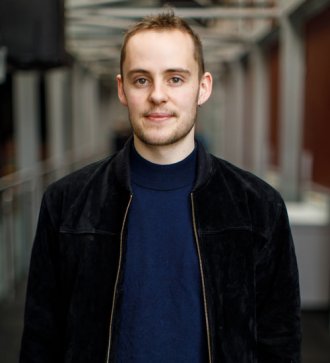
Harry is a London-based writer/director. His latest short, Sunday Morning Coming Down, was nominated for Best British Short at the U.K. Film Festival, and has been officially selected by BFI Flare and LSFF. In January 2017 he won Enter The Pitch, receiving a grant to make his next short film, which explores post-Brexit xenophobia through supernatural tropes. His script for Wren Boys (about the re-moulding of traditions in Ireland) has been commissioned by the BFI’s London Calling Short Film scheme, and he’s developing a feature based on this short. He’s also developing a documentary on the testimonies given to the Wolfenden Committee in the build up to 1967’s partial decriminalisation of homosexuality.
Harry on challenges for LGBT film and filmmakers
Distinguishing between gay “ordinariness” and “this is any film but it happens to be centred on gay people”. The gay experience is specific, and that shouldn’t be washed over. I want my films to resonate beyond the context of sexuality, but for me it’s such a formative part of character. I’ve been told “don’t restrict yourself” to queer narratives — “audiences are bored by representations of gay struggle”. Moonlight stuck two fingers up to that logic. Discovering your sexuality through a process of fear and shame isn’t an experience you can draw a line under when people tell you “it’s cool”. So don’t be put off — write what you want. Secondly, there’s a belief that LGBT cinema is arthouse, but sending it out to the multiplex is key in representing gay experience to a wider audience.
Harry on an admired filmmaker
When I was 18 I manned the phones at a production company, and one day Steve McQueen called up. I’d never heard of him, so I did the classic Devil Wears Prada blunder of asking how he spelt his surname. He was charming, but my boss was a bit unimpressed so I went back and tore through Hunger (2009). That film punches me in the gut like no other. As a viewer, you’re so active. I’ve watched it hundreds of times, and always notice something new. I was glued to the screen thinking WOW, here’s someone refiguring the potential of cinema to enhance the audience experience. His work reminds me not to compromise; to be bold and honest in making decisions; to refuse the frontier between sensitive cinema and cinema as entertainment. His films are unfailingly committed, but their credibility is enhanced through shots and rhythms that are unexpected and exciting. Applying his intensity and flare to the stories I want to tell seems to me a good recipe for the best kind of naturalism.
Georgia Oakley, writer-director
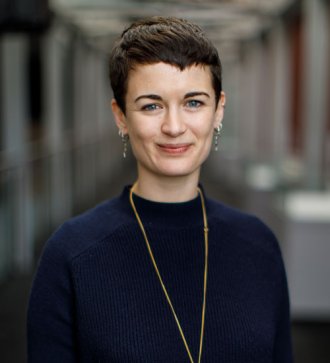
Georgia is a writer/director based in London. Her latest latest film Little Bird, starring Imelda Staunton & Emily Taaffe, will premiere at the TriBeCa Film Festival in New York. Prior to completion, Little Bird was awarded the Kodak/Kickstarter Grant, the Jameson Works Film Bursary and the Audience Award Jury Prize. Her previous shorts have screened at dozens of international festivals including New York Film Festival, London Short Film Festival, Berlin Short Film Festival, Aesthetica & Bird’s Eye View; as well as winning awards in New York, San Francisco and Mumbai. Alongside her narrative work Georgia occasionally makes documentaries, in 2014 she spent time in India documenting the lives of the transgender community in the wake of a landmark new ruling. Georgia is currently directing a comedy web series that explores sexual fluidity in the digital age.
Georgia on challenges for LGBT film and filmmakers
Despite Moonlight winning the best picture Oscar last month, LGBT filmmakers are still being asked the question ‘who’s going to watch it?’ As a young, female audience member, I feel i’m asked to relate [far too often] to older male characters on screen, and I can definitely empathise with them without any difficulty. So this idea that people of a certain sexuality will or won’t be able to relate to your character is pretty archaic. There is also wider generational gap in terms of the way people view sexuality and gender. Generally speaking, millennials have very different ideas about what it means to be LGBT, as well as the boundaries and limitations of assigned gender. But if the people in charge of funding your film don’t feel the same way, that has a huge knock-on effect on the type of content we’re allowed to make, and whether it gets picked by the ‘mainstream’ media or not.
Georgia on an admired filmmaker
I love everything about the films of Céline Sciamma. Her ability to tell touching, human stories with barely any dialogue is unrivalled. Tomboy is the holy grail; a film that made me sure I was pursuing the right career. To be able to make a film about such immense themes so delicately, and in a way that moves everyone I know who has seen it, is really inspirational. I also admire her courage as a filmmaker. I think there’s a risk in today’s climate, for filmmakers to feel they don’t have the right to tell other people’s stories. So for her to make a film about young black teenagers after overhearing a conversation on a tube platform, is something to be respected. Respected, because she did it with authenticity, as if those girls were telling their own stories.






